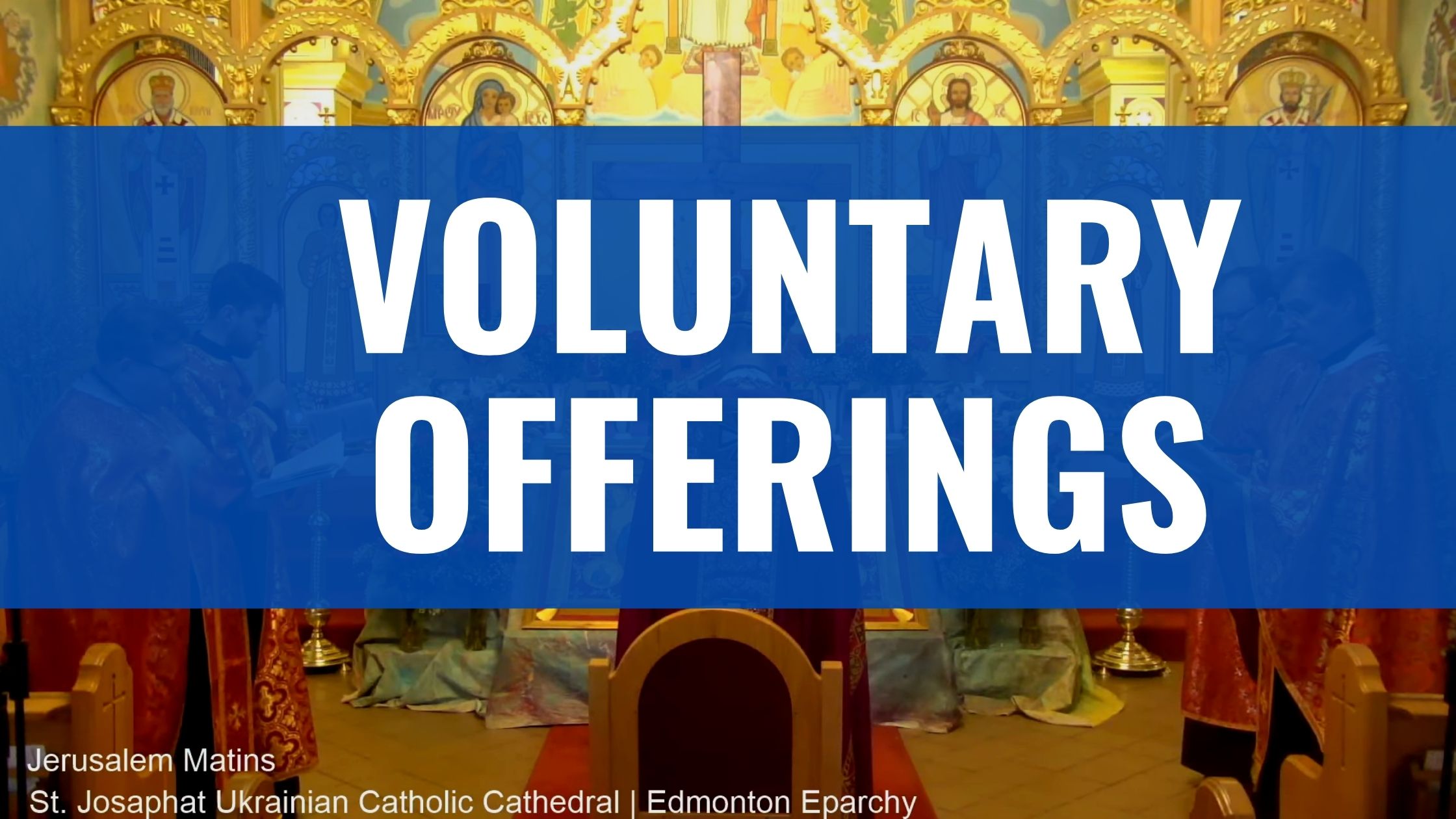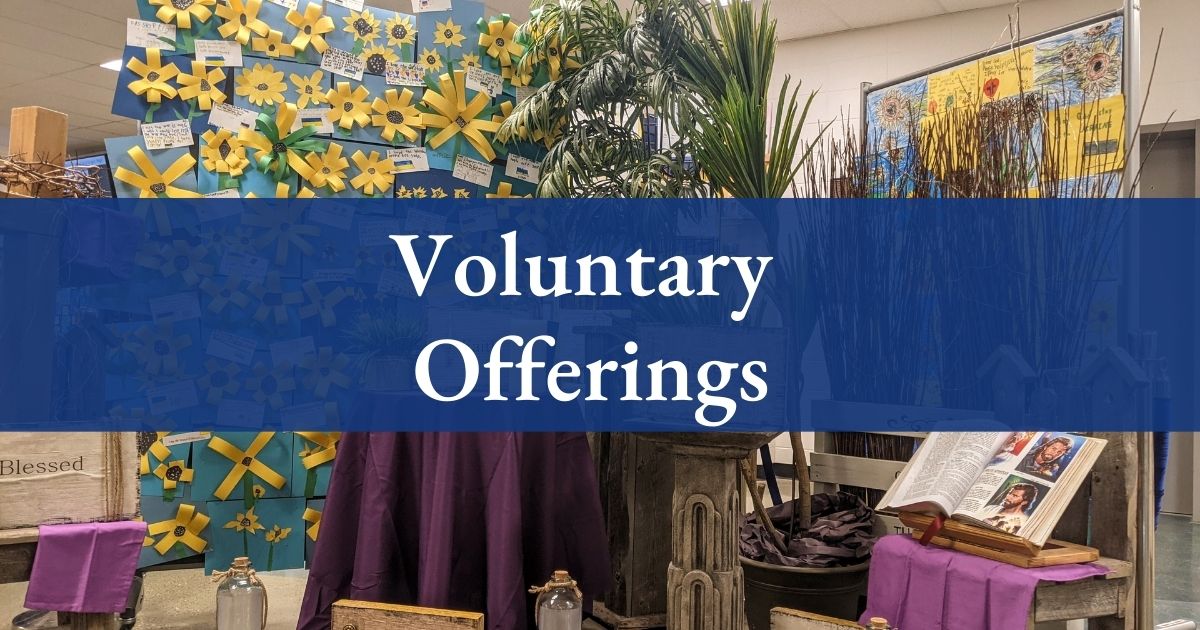Introduction
On the occasion of the celebration of the Divine Liturgy, the Holy Mysteries (sacraments), blessings and other liturgical celebrations, the Christian faithful often inquire as to whether a voluntary offering is appropriate for pastoral functions by the pastor and other clergy attached to the parish.
The Second Vatican Council (1962-1965) emphasized that the Church is to remunerate the clergy adequately for their priestly work so that they will be less dependent on the voluntary offerings of the faithful (Decree on the Ministry and Life of Priests, Presbyterorum ordinis, nos. 20-22). However, in those places where clergy support depends completely or to a great extent on such offerings, the Council called for a more equitable sharing of the voluntary offerings from the faithful.
The Code of Canons of the Eastern Churches (1990), reflecting the spirit of Vatican II, distinguishes between offerings given for the celebration of the Divine Liturgy for their intentions, and other voluntary offerings or “stole fees” as they were once called.
Divine Liturgy intentions
The priest who celebrates or concelebrates the Divine Liturgy or the Liturgy of the Pre-Sanctified Gifts can legitimately receive offerings from the faithful for their intentions (canon 715).
On the occasion of the celebration of the Divine Liturgy, the preferred practice is for the priest to receive only those offerings which the faithful make of their own accord (canon 716).
Even without any offering, priests are to celebrate the Divine Liturgy for the intentions of the Christian faithful, especially the poor (canon 716).
The pastor is to celebrate the Divine Liturgy frequently for his parishioners (canon 294); however, he has an obligation to do so on the days prescribed by the particular law of the Ukrainian Catholic Church, namely, every Sunday and on Feast Days of Obligation.
Holy Mysteries (sacraments), blessings, and other liturgical celebrations
Previous canonical legislation held that a pastor had a right to receive all the legitimate offerings (stole fees) for service performed by him or by another (Cleri sanctitati, canon 504).
In the spirit of Vatican II, the new Code of Canons of the Eastern Churches abolishes the previous norm and now states that “all offerings which are received on the occasion of performing some pastoral function by the pastor and other clerics attached to the parish, other than the Divine Liturgy, are to be put into the parish fund, unless, with respect of voluntary offerings, there is a clear contrary intention on the donor’s part” (canon 291).
The canonical norm continues: “It is the competence of the eparchial bishop, after consulting the presbyteral council, to establish regulations concerning the destination of these offerings and to provide for the remuneration of the pastor and the other parish clerics” (canon 291; see also canon 390).
Therefore, the eparchial bishop, in consultation with the presbyteral council, is to decide how these offerings are to be used, and how the clergy who engage in pastoral ministry are to be remunerated.
There are various possibilities regarding the destination of the voluntary offerings:
- exclusive property of the pastor;
- divided proportionately or equally among all the priests attached to a parish;
- exclusive property of the parish;
- placed in a common fund of the eparchy to provide for the equitable support of all the clergy in the eparchy or those who have retired or are infirm (canon 1021, §1).
At this time, prudence dictates that given the current levels of clergy remuneration for celibate and married clergy alike, the voluntary offerings are the exclusive property of the priest.
Moral Theology
The spirit of the present canon law, as well as time-honoured principles of moral theology, dictate that spiritual ministry is never contingent upon remuneration. Therefore, priests are to celebrate liturgical services for the needs of the faithful, especially the poor, even where an offering is not received, nor are they to request stipends if they are not offered.
Moral theology also dictates that if a priest exacts more than the customary voluntary offerings, he is held to restitution.
GUIDELINES REGARDING VOLUNTARY OFFERINGS ON THE OCCASION OF LITURGICAL CELEBRATIONS
On the occasion of the celebration of the Divine Liturgy, the Holy Mysteries (sacraments), blessings and other liturgical celebrations, the Christian faithful often inquire as to whether a voluntary offering is appropriate for pastoral functions by the pastor and other clergy attached to the parish.
The following is intended by way of guidelines to assist the faithful in responding to questions of voluntary offerings. It must be emphasized that the spiritual ministry is never contingent upon remuneration, and our priests will always support our faithful even where an offering is not forthcoming.
Divine Liturgy intention – during a regularly scheduled weekday ………………………………….. $20.00
Divine Liturgy intention and Panakhyda – during a regularly scheduled weekday ……………. $20.00
Divine Liturgy intention – memorial or specially requested time ……………………………………. $75.00
Liturgy of the Pre-Sanctified Gifts intention ………………………………………………………………… $20.00
Sorokousty (prayer services for the deceased during the Great Fast/Lent) ………………………… $20.00
Easter grave-side blessings during a scheduled time (per family) …………………………………… $20.00
House blessings ……………………………………………………………………………………………………. Donation
Panakhyda (memorial service for the deceased; specially requested time and place) ………… $50.00
Plus, travel (considerable distance*) …………………………………………………………………. $100.00
Baptism ……………………………………………………………………………………………………………….. Donation
Plus, travel (considerable distance*) ………………………………………………………………….. $100.00
Baptismal Certificate (additional copy) ………………………………………………………………… $10.00
Marriage (includes documentation, rehearsal and ceremony) ………………………………………… $300.00
Plus travel (considerable distance*) …………………………………………………………………… $100.00
Marriage Certificate (additional copy) ………………………………………………………………….. $10.00
Wedding Anniversary Blessing ………………………………………………………………………………….. $75.00
Funeral ………………………………………………………………………………………………………………….. $400.00
Plus travel (considerable distances*) ………………………………………………………………….. $100.00
For cantor fees and church usage, please consult the parish directly.
* Considerable distance refers to travel of approximately 100 km each way. A greater amount may be offered for distances more than 100 km each way.


